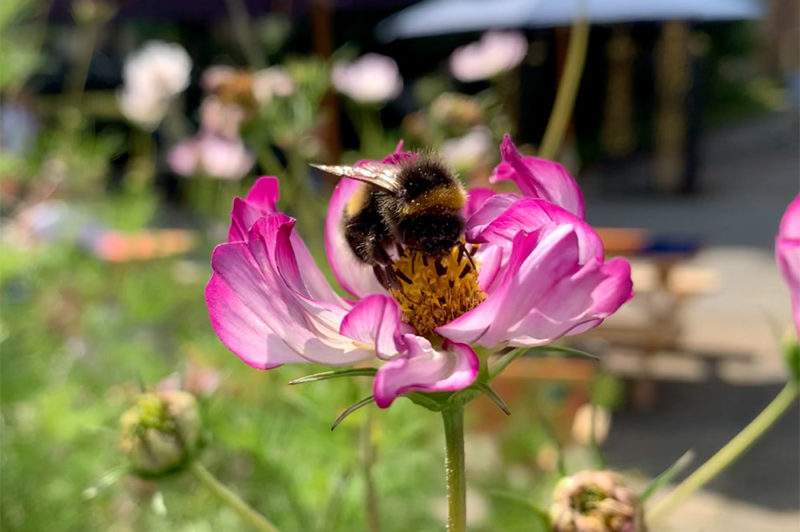
By Jenny Kent
York streets and verges are sprayed with environmentally damaging pesticides to kill weeds, 3 times a year between March and September.
Why should you care?
Glyphosate and herbicide ingredients harm pollinators, biodiversity and the environment, and that includes us.
Multiple studies have shown that Glyphosate and other pesticide ingredients are damaging to Bees, pollinators and the local environment (1). It affects bees’ ability to navigate, see colour, their immunity and larval development (2) (3).
It is also likely detrimental to human health; whilst a review by the European Chemicals Agency did not re-classify Glyphosate as a carcinogen (4) trials against Bayer and Monsanto in the US claim it has caused non-Hodgkin’s Lymphoma amongst other conditions. Recent studies have shown exposure leads to lower birthweights in humans, and higher risk of neonatal hospital care (5).
Alternatives exist and are used all over the world
Many countries, including France, Germany, Austria, Italy, the Netherlands, Canada and the Czech Republic have banned or restricted its use, including for agricultural purposes (6).
Over 60 UK cities and boroughs, Westminster being the latest, have accepted the evidence and switched to alternatives, as well as encouraging wildflower verges and community involvement in a less managed environment (7). York has a publicly stated commitment to protecting Pollinators (8), and it is hard to understand why the current Executive Member and Council Officers have continued to say the balance between protecting pollinators and protecting urban infrastructure falls on the side of using glyphosate.
What is the Council doing?
This February a last-minute concession was made at a Customer Call-in meeting which allowed Wards to opt out of one of the 3 summer sprays. It was stated that the Council is ‘on a journey’ to phase out glyphosate and further trials of alternatives will take place. It is on the agenda for Council Discussion on Wednesday 14 December, Weed Pilot 2022 – Feedback and Options Executive Member for Environment and Climate Change.
What can you do?
- Email your councillor and tell them you want a City-Wide Pollinator friendly weed management plan, enacted before spraying starts again in March 2023, and encourage everyone you know to do so too! Find your councillor here:
https://democracy.york.gov.uk/mgMemberIndex.aspx?brc=1
- Attend the meeting on December 14th in person or by Zoom and register to speak by 5pm Friday 9th December. Register here: https://www.york.gov.uk/COVIDDemocracy#:~:text=If%20you%20want%20to%20speak,pm%20on%20the%20previous%20Thursday.
- Sign and share the petition calling for a City-Wide Ban and proper action on the Pollinator Policy:
- https://besjournals.onlinelibrary.wiley.com/doi/full/10.1111/1365-2664.13867
- https://www.sciencedirect.com/science/article/pii/S0048969722063975
- https://www.science.org/doi/10.1126/science.abf7482
- https://echa.europa.eu/-/glyphosate-no-change-proposed-to-hazard-classification
- https://ehjournal.biomedcentral.com/articles/10.1186/s12940-022-00906-3
- https://biodx.co/28-countries-ban-the-use-of-glyphosate-key-ingredient-in-roundup/
- https://www.westminster.gov.uk/news/councils-push-green-spaces-after-banning-toxic-weedkiller-all-council-property
- chrome-extension://efaidnbmnnnibpcajpcglclefindmkaj/https://democracy.york.gov.uk/documents/s141785/Annex%206%20CYC%20Pollinator%20Strategy_Draft%20v2.pdf

